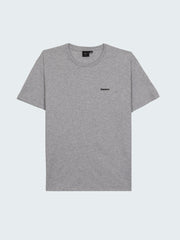Following a group of female seaweed farmers, Bahari Kitanda is a powerful tale of survival, empowerment, and the unbreakable bond between women and the ocean. The Finisterre Foundation CIC is proud to have provided the project with appropriate clothing for their participants, and is excited to share their story…
The Bahari Kitanda Project
05.12.24
3 min read
Written by Zak Rayment
Photography by Fabian Palmer
Situated off the east coast of Africa, Uzi island sits as one of four small landmasses that make up Unguja Island, just off mainland Tanzania. Mangrove lined causeways connect the islands which are accessible by car or boat, depending on the tides. Uzi is said to be one of the first inhabited parts of the Islands, relying predominantly on fishing and seaweed farming.
Known as Mwani, these seaweed farmers are predominantly women, working to provide a modest income for their families. Due to the nature and location of their work, these Mwani women often face significant risks from strong currents and rising tides that can quickly pull them into deep waters. Tragically, many Mwani farmers are also unable to swim, making drowning a common danger.
Working to address this issue is the locally founded and run NGO, the Panje Project – a remarkable organisation who are dedicated to providing swimming training across the Zanzibar archipelago to women, men and children.
After meeting with a group of Mwani women, their team were profoundly moved by their resilience and unyielding joy, despite the challenges they regularly encountered. And so, the Bahari Kitanda Project was born – a collaboration between the Panje Project, gifted Tanzanian storyteller, Fabian Palmer, and inspiring creative impact producer, Gloria Asimwe. Bahari Kitanda (Ocean Bed) is a documentary film that brings the story and struggle of these women to the screen, whilst addressing the threats that endanger their livelihoods and their deep generational connection to the ocean.
Finding culturally appropriate clothing which the participants could also swim in was a real challenge. Attempting to swim wearing heavy fabrics to stay covered up is both difficult and dangerous – a problem we are incredibly familiar with through the development of the Finisterre Seasuit. Having heard of the Seasuit, the Levante Films team reached out and the Finisterre Foundation gladly provided 8 Seasuits and Hijabs to be used by the group of Mwani farmers featured in the documentary.
A full coverage swimwear option that was initially developed to be used for surfing, these Seasuits provided the women with ocean attire that was both functional, culturally sensitive and protective. It has given them more confidence in the water as they are no longer being weighed down by heavy fabric, protects their skin from the high levels of UV exposure as they work long hours on the seaweed beds, and allows them to wear clothing that dries fast and does not cling to their bodies, which can lead to comments and negative remarks as they walk back to their villages after their work.
For us, it’s the embodiment of what the Seasuit Project has always been about - to create something that enables women from any background to access the ocean, with the freedom to choose what they wear in the water.




























































































